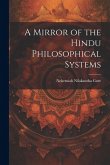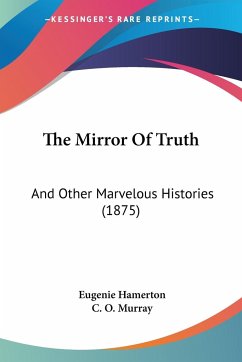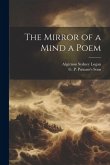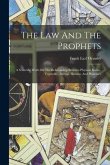Schade – dieser Artikel ist leider ausverkauft. Sobald wir wissen, ob und wann der Artikel wieder verfügbar ist, informieren wir Sie an dieser Stelle.
- Broschiertes Buch
- Merkliste
- Auf die Merkliste
- Bewerten Bewerten
- Teilen
- Produkt teilen
- Produkterinnerung
- Produkterinnerung
Krishnamurti offers provocative, new, and sensitive answers to perennial questions about: - Why relationships are difficult? - The difference between pleasure and desire. - Why is a sex a problem in my life? - What is chastity? - Am I really in love? - How can I live with another without conflict?
Andere Kunden interessierten sich auch für
![A Mirror of the Hindu Philosophical Systems A Mirror of the Hindu Philosophical Systems]() Nilakantha Gore NehemiahA Mirror of the Hindu Philosophical Systems23,99 €
Nilakantha Gore NehemiahA Mirror of the Hindu Philosophical Systems23,99 €![The Mirror Of Truth The Mirror Of Truth]() Eugenie HamertonThe Mirror Of Truth32,99 €
Eugenie HamertonThe Mirror Of Truth32,99 €![Nonperennial Medicagos: The Agronomic Value and Botanical Relationship of the Species Nonperennial Medicagos: The Agronomic Value and Botanical Relationship of the Species]() Roland McKeeNonperennial Medicagos: The Agronomic Value and Botanical Relationship of the Species15,99 €
Roland McKeeNonperennial Medicagos: The Agronomic Value and Botanical Relationship of the Species15,99 €![Behind the Mirror Behind the Mirror]() John Paul RhinehartBehind the Mirror24,99 €
John Paul RhinehartBehind the Mirror24,99 €![The Mirror of a Mind a Poem The Mirror of a Mind a Poem]() Algernon Sydney LoganThe Mirror of a Mind a Poem17,99 €
Algernon Sydney LoganThe Mirror of a Mind a Poem17,99 €![The Mirror Of Dentistry, A Review Of The Present State Of The Dental Profession The Mirror Of Dentistry, A Review Of The Present State Of The Dental Profession]() Joseph Wild DavenportThe Mirror Of Dentistry, A Review Of The Present State Of The Dental Profession15,99 €
Joseph Wild DavenportThe Mirror Of Dentistry, A Review Of The Present State Of The Dental Profession15,99 €![The Law And The Prophets: A Scientific Work On The Relationship Between Physical Bodies, Vegetable, Animal, Human, And Planetary The Law And The Prophets: A Scientific Work On The Relationship Between Physical Bodies, Vegetable, Animal, Human, And Planetary]() Frank Earl OrmsbyThe Law And The Prophets: A Scientific Work On The Relationship Between Physical Bodies, Vegetable, Animal, Human, And Planetary20,99 €
Frank Earl OrmsbyThe Law And The Prophets: A Scientific Work On The Relationship Between Physical Bodies, Vegetable, Animal, Human, And Planetary20,99 €-
-
-
Krishnamurti offers provocative, new, and sensitive answers to perennial questions about: - Why relationships are difficult? - The difference between pleasure and desire. - Why is a sex a problem in my life? - What is chastity? - Am I really in love? - How can I live with another without conflict?
Produktdetails
- Produktdetails
- Verlag: Motilal Banarsidass
- Seitenzahl: 140
- Erscheinungstermin: 30. August 2008
- Englisch
- Abmessung: 230mm x 150mm x 30mm
- ISBN-13: 9788120832749
- ISBN-10: 8120832744
- Artikelnr.: 69828502
- Herstellerkennzeichnung
- Libri GmbH
- Europaallee 1
- 36244 Bad Hersfeld
- gpsr@libri.de
- Verlag: Motilal Banarsidass
- Seitenzahl: 140
- Erscheinungstermin: 30. August 2008
- Englisch
- Abmessung: 230mm x 150mm x 30mm
- ISBN-13: 9788120832749
- ISBN-10: 8120832744
- Artikelnr.: 69828502
- Herstellerkennzeichnung
- Libri GmbH
- Europaallee 1
- 36244 Bad Hersfeld
- gpsr@libri.de
JIDDU KRISHNAMURTI (18951986) is regarded internationally as one of the great educators and philosophers of our time. Born in South India, he was educated in England, and traveled the world, giving public talks, holding dialogues , writing, and founding schools until the end of his life at the age of ninety. He claimed allegiance to no caste, nationality, or religion and was bound by no tradition. Time magazine named Krishnamurti, along with Mother Teresa, "one of the five saints of the 20th century," and the Dalai Lama calls Krishnamurti "one of the greatest thinkers of the age." His teachings are published in 75 books, 700 audio titles and 1200 videocassettes. Thus far, over 4,000,000 copies of his books have been sold in over thirty languages. The rejection of all spiritual and psychological authority, including his own, is a fundamental theme. He said human beings have to free themselves of fear, conditioning, authority, and dogma through self-knowledge. He suggested that this will bring about order and real psychological change. Our violent, conflict-ridden world cannot be transformed into a life of goodness, love, and compassion by any political, social, or economic strategies. It can be transformed only through mutation in individuals brought about through their own observation without any guru or organized religion. Krishnamurti's stature as an original philosopher attracted traditional and also creative people from all walks of life. Heads of state, eminent scientists, prominent leaders of the United Nations and various religious organizations, psychiatrists and psychologists, and university professors all engaged in dialogue with Krishnamurti. Students, teachers, and millions of people from all walks of life read his books and came to hear him speak. He bridged science and religion without the use of jargon, so scientists and lay people alike could understand his discussions of time, thought, insight, and death. During his lifetime, Krishnamurti established foundations in the United States, India, England, Canada, and Spain. Their defined role is the preservation and dissemination of the teachings, but without any authority to interpret or deify the teachings or the person. Krishnamurti also founded schools in India, England, and the United States. He envisioned that education should emphasize the understanding of the whole human being, mind and heart, not the mere acquisition of academic and intellectual skills. Education must be for learning skills in the art of living, not only the technology to make a living. Krishnamurti said, "Surely a school is a place where one learns about the totality, the wholeness of life. Academic excellence is absolutely necessary, but a school includes much more than that. It is a place where both the teacher and the taught explore, not only the outer world, the world of knowledge, but also their own thinking, their behavior." He said of his work, "There is no belief demanded or asked, there are no followers, there are no cults, there is no persuasion of any kind, in any direction, and therefore only then we can meet on the same platform, on the same ground, at the same level. Then we can together observe the extraordinary phenomena of human existence."








